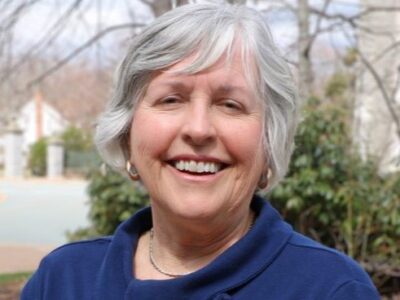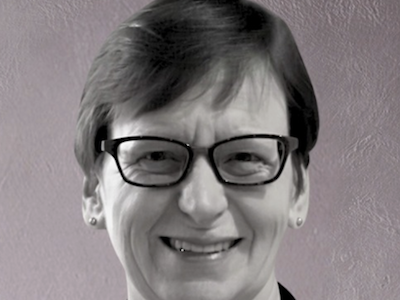Interview by Sherlyn Assam.
Laidlaw Foundation is giving $1.85 million towards an endowment to the Foundation for Black Communities. PANL Perspectives spoke with Jehad Aliweiwi, Executive Director of Laidlaw Foundation, to learn about the process behind the historic contribution. Laidlaw and Inspirit foundations were Canada’s first and only foundations to answer FFBC’s call for support, pledging 3.5% of their capital base. Laidlaw Foundation supports young people impacted by the justice, education, and child-welfare systems to become healthy and engaged by investing in innovative ideas, convening interested parties, advocating for systems change, and sharing learning across the sector.
 What led to the decision of Laidlaw Foundation making such a large capital transfer to FFBC, and when did the partnership begin?
What led to the decision of Laidlaw Foundation making such a large capital transfer to FFBC, and when did the partnership begin?
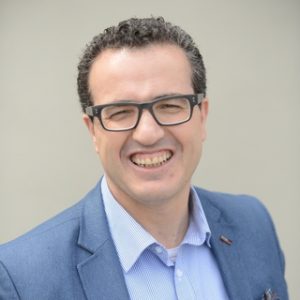
Jehad Aliweiwi, Executive Director of Laidlaw Foundation
Aliweiwi: As a foundation, we’re really interested in being connected to the community and funding grassroots, community-led initiatives that many others won’t look at. This presented us with an opportunity to be deeply connected to that particular demographic of organizations and initiatives. The leadership of the working group that led the formation and the development of the Foundation for Black Communities has been impressive in forwarding this compelling vision that’s grand but practical — an argument for something that hasn’t been done before but should have been done way, way sooner.
 Can you explain the decision-making process behind funding and choosing programs?
Can you explain the decision-making process behind funding and choosing programs?
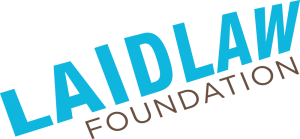 Aliweiwi: We reach communities, we do workshops, we try to make the target of our outreach and communications communities who we know are at the forefront of community change that we’re interested in. We’re interested in youth engagement and leadership in a number of areas. The issue area we’re most concerned with is education, justice and child welfare. And these tend to be marginal conversations at the margin of society for those who are really even further marginalized.
Aliweiwi: We reach communities, we do workshops, we try to make the target of our outreach and communications communities who we know are at the forefront of community change that we’re interested in. We’re interested in youth engagement and leadership in a number of areas. The issue area we’re most concerned with is education, justice and child welfare. And these tend to be marginal conversations at the margin of society for those who are really even further marginalized.
 In terms of grantmaking, it seems Laidlaw is proactive, because you seek communities that probably don’t have access to as much administrative help as the bigger organizations.
In terms of grantmaking, it seems Laidlaw is proactive, because you seek communities that probably don’t have access to as much administrative help as the bigger organizations.
Aliweiwi: We know that grants and fundraising is the game of those who have resources already. There are people, communities and organizations that have full-time, dedicated staff expertise that can put together the compelling, convincing and beautifully appealing submissions. That’s not what we’re interested in. Within philanthropy, we’re also extremely conscious of the fact that private foundations are really an exclusive private club that’s disconnected from the realities of people that they want to work with and ideally serve.

“Unfunded: Black Communities Overlooked by Canadian Philanthropy” reviews Canada’s top 10 foundations and finds that they gave only 0.03% of their grants to Black-led organizations and 0.13% to Black-serving organizations.
One of the most compelling things that we heard in the Unfunded report: “We need you to fund what we need, not what you would like.” Foundations and philanthropists tend to fund people they know; they tend to be from their own circles and focus on issues that they’re passionate about, and issues that they think need to be addressed. And very often, they’re really not connected to the community.
And how do you get connected to communities? You have two things: you have staff on your teams that are from the community, and you have board members on the decision-making tables who are from the community.
It’s not a coincidence that the only two foundations who answered the call for the Foundation for Black Communities and transferred the requested amount of 3.5% of assets, is led by non-white people and have non-white people on their board and on staff.
These are systemic issues in the philanthropic sector that’s making it hard for foundations, boards and leaders to say, “Yeah, Black communities are disproportionately impacted by just about every single issue.” It’s overwhelmingly demonstrated that Black and Indigenous communities are most impacted by the system. So, for us, it made sense to say, “We’re going to work with these communities.”
 Your foundation’s priority is evidence-based policies and supporting youth and vulnerable communities. How do you see policy change and advocacy converging with FFBC’s mission?
Your foundation’s priority is evidence-based policies and supporting youth and vulnerable communities. How do you see policy change and advocacy converging with FFBC’s mission?
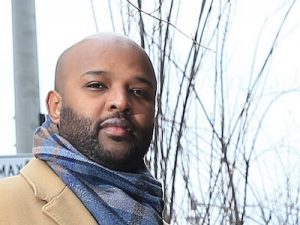
The FFBC aims to be a first-of-its-kind philanthropic organization dedicated to Black people in Canada.
Aliweiwi: The main thing is that a lot of the issues tend to be systemic. They’re not just issues that happen to be randomly created by a series of unfortunate practices. No, these are embedded in a system that has had the interests of particular groups. The interest of policymaking, the focus of creating legislation, has not been our community’s. That’s why we also want groups we work with to actually be mindful of that. They also have a role to play in advocacy, direct action, and a clear call to change policy, not only to ask for and to expect funding — but also to expect change.
Jehad Aliweiwi is the Executive Director of Laidlaw Foundation and is on Twitter and LinkedIn.
Sherlyn Assam is an MPNL student at Carleton University. She’s also a freelance journalist on Instagram, Twitter, and LinkedIn. Her work can be found at sherlynassam.com. (Photo of waves is courtesy of Chris Chan and Unsplash.)
Sign up for PANL Perspectives' free, monthly newsletter
Tuesday, May 25, 2021 in Q&A with Inspirit & Laidlaw, Social Justice & Change, Unfunded & related stories
Share: Twitter, Facebook

